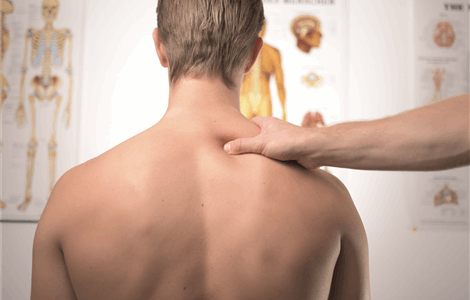
Range-of-motion movements and, often, corticosteroids and numbing drugs inserted into the joint capsule, are some of the treatments used for frozen shoulders. In a limited number of cases, arthroscopic surgery may be required to release the joint capsule so that it can function more freely. Keep reading to learn more about treatment for frozen shoulder and when to call our GP for frozen shoulder in Fuengirola.
Is it frozen shoulder?
A condition characterized by stiffness and pain in your shoulder joint is what we know by frozen shoulder or adhesive capsulitis.
Typically, signs and symptoms start gradually, deteriorate over time and then resolve, usually within one to three years. Normally, the frozen shoulder develops slowly and in three phases, each lasting a number of months.
- Freezing phase. Any shoulder movement causes pain, and the range of motion of your shoulder begins to become limited.
- Frozen phase. During this phase, pain may begin to diminish. Your shoulder becomes stiffer, however, and it becomes more difficult to use it.
- Thawing phase. It starts to improve the range of motion in your shoulder. The pain worsens at night for some people, sometimes disrupting sleep.
If you have any of these symptoms call our GP for frozen shoulder in Fuengirola
Frozen shoulder treatment
Most frozen shoulder therapy involves controlling pain in the shoulder and preserving as much range of motion as possible in the shoulder.
Medications
Over-the-counter pain relievers may help reduce frozen shoulder-related pain and inflammation. In some cases, stronger pain-relieving and anti-inflammatory drugs may be prescribed by our GP for frozen shoulder in Fuengirola.
Therapy
To help recover as much of your shoulder mobility as possible, a physical therapist can teach you range-of-motion exercises. To optimize the recovery of your mobility, your commitment to doing these exercises is important.
Surgical and other procedures
Within 12 to 18 months, most frozen shoulders get better on their own. Our GP may suggest the following for persistent symptoms:
Injections with steroids. Injecting corticosteroids into your shoulder joint, particularly in the early stages of the process, can help reduce pain and improve shoulder mobility.
Joint distension. Injecting sterile water into the capsule of the joint can help stretch the tissue and make moving the joint easier.
Shoulder manipulation. You receive a general anesthetic in this procedure, so you'll be unconscious and feel no pain. Then, to help loosen the tightened tissue, the doctor moves your shoulder joint in various directions.
Surgery. Frozen shoulder surgery is rare, but your doctor may recommend surgery to remove scar tissue and attachments from inside your shoulder joint if nothing else has helped. This surgery is usually performed by doctors with illuminated, tubular instruments inserted (arthroscopically) through small incisions around your joint.
When to call our GP for frozen shoulder in Fuengirola
Call our GP for frozen shoulder in Fuengirola if you have persistent shoulder pain that limits your movement. The earlier a frozen shoulder is diagnosed, the more likely it is that long-term pain and stiffness can be prevented by treatment.